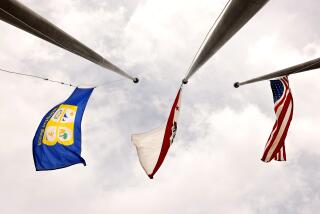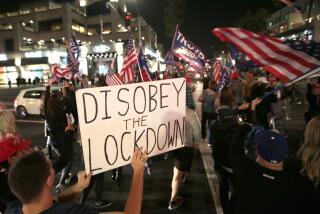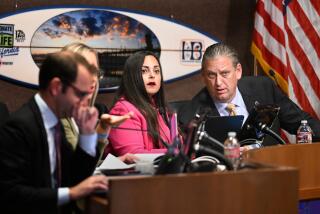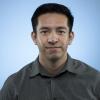Gay Californians take heart in Obama’s call for equality
In San Francisco, George Roehm got the chills and reached for his smartphone to text an out-of-state friend. In Long Beach, Stan Mallard thought about how far this struggling country has come — and the great distance still ahead to achieve anything like progress.
And dance instructor Chaz Knight, an urban dweller if ever there was one, found himself wondering Monday how President Obama’s words would sound to a teenage kid in the rural South. How freeing it would be, he figured, to hear the president declare that this country’s work would not be done “until our gay brothers and sisters are treated like anyone else under the law.”
“I thought of a small family in Arkansas and their 13-year-old son who hasn’t come out yet, and how great he’s got to feel,” Knight, a West Hollywood resident by way of New York, said as he strolled along Santa Monica Boulevard, headphones on, iced coffee in hand.
The president took the stage with the Supreme Court justices — who soon will consider the constitutionality of gay marriage — arrayed behind him. When he told the world that “if we are truly created equal, then surely the love we commit to one another must be equal as well,” Obama brought the issue of gay marriage “into everyone’s home, whether they like it or not,” Knight said.
Monday wasn’t the kind of day that sent thousands of gay Californians into the streets waving rainbow flags and weeping tears of joy. Demonstrations like that usually are reserved for milestones — court decisions, election results, legislative breakthroughs.
Actions, not words.
But words still matter. And on the occasion of Obama’s second inauguration, his call for equality resonated from San Francisco’s Castro District to West Hollywood.
“I never expected in my lifetime to hear our president talk like that,” an emotional Roehm said as the inaugural parade tromped silently along on a muted television screen in Twin Peaks Tavern, known as the Castro’s answer to “Cheers.”
It is believed to be the first gay bar in the country that uncovered its windows, opened its doors and let the world look inside. The San Francisco Board of Supervisors recently voted to designate the bright and cozy saloon an official city landmark.
That heartened Roehm, who has co-owned the Twin Peaks for nearly a decade. But it was a different kind of history that overwhelmed him Monday. As Obama likened the gay rights movement to campaigns for civil rights and women’s suffrage, Roehm texted a friend in Seattle before the president was even done talking.
Obama, Roehm thumbed, “makes me so proud to be an American!!”
A few blocks down Castro Street, Alan Pardini and Ken Noyes walked hand in hand, taking an afternoon break from home repair. The men have been together for nearly 35 years. Pardini, a San Francisco native, marched with gay rights activist Harvey Milk in the 1970s before Milk was assassinated.
“We’re standing here near Harvey’s camera store on Martin Luther King Day, and a historic president is including us in the definition of the civic family,” Pardini said. “I’m just glad that he did.”
Obama’s words brought out more than immense feelings of personal pride. In dozens of interviews, many gay Californians commented on the president’s pragmatism.
Obama announced his support for gay marriage last year, after his outspoken vice president, Joe Biden, did so. And he waited until he had no more elections ahead, many noted, to make Monday’s bold comments about gay rights.
George Balsana, who was strolling the Castro with an out-of-town guest, said he was touched when he heard the president talk about “Seneca Falls and Selma and Stonewall” in the same breath. It took “bravery,” the tech worker said.
“But … 20 years ago, it would have surprised me more,” Balsana added. “It’s his second term. He can do what he wants.”
Mallard, a Republican who said he supported Obama, was touched by the symbolism of the president’s speech but wanted to see more. Mallard is a retired biochemist turned chef. His partner, Scott McDonald, is a retired Army officer. On Monday they were hanging out in Long Beach’s Sweetwater Saloon.
The two men have been together for 23 years, but Mallard said he would not have access to McDonald’s pension should something happen to his partner. And they can’t get married in California.
“In the next four years, do I think I can walk down the street holding the hand of my gay husband?” Mallard asked. “I don’t know.”
La Ganga reported from San Francisco and Flores and Rojas from Los Angeles. Times staff writer Anh Do in Los Angeles contributed to this report.
More to Read
Start your day right
Sign up for Essential California for news, features and recommendations from the L.A. Times and beyond in your inbox six days a week.
You may occasionally receive promotional content from the Los Angeles Times.








